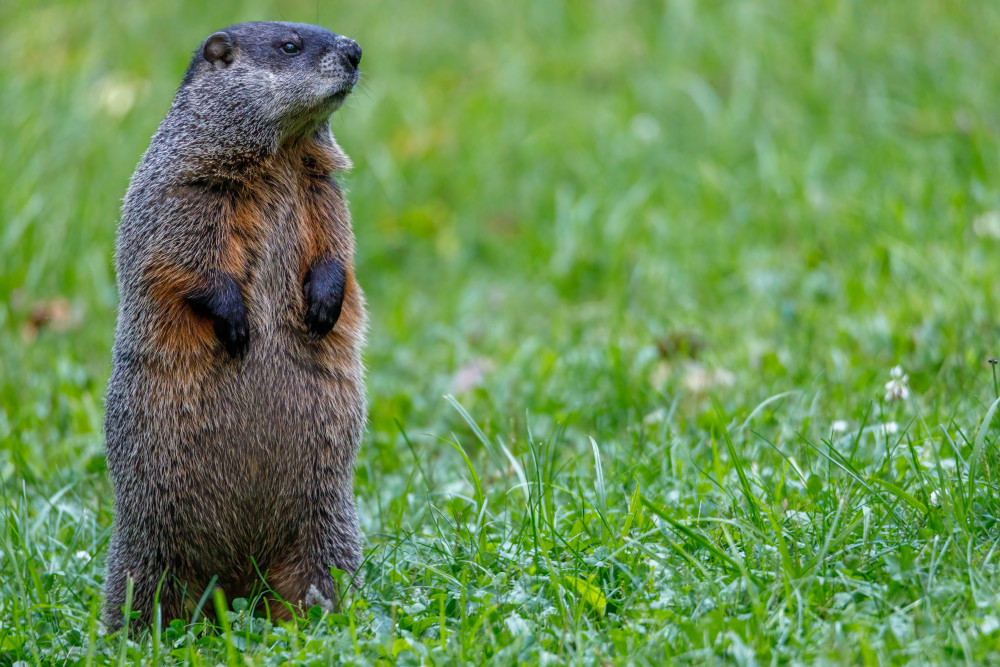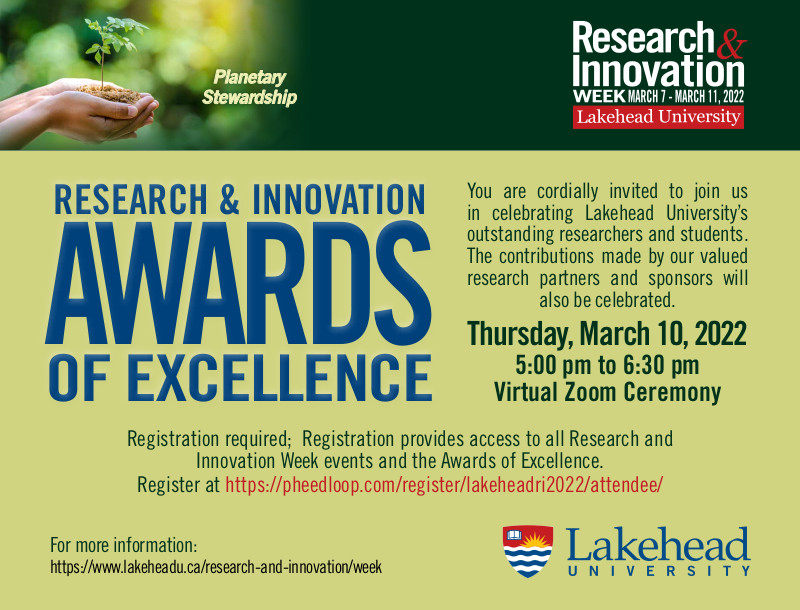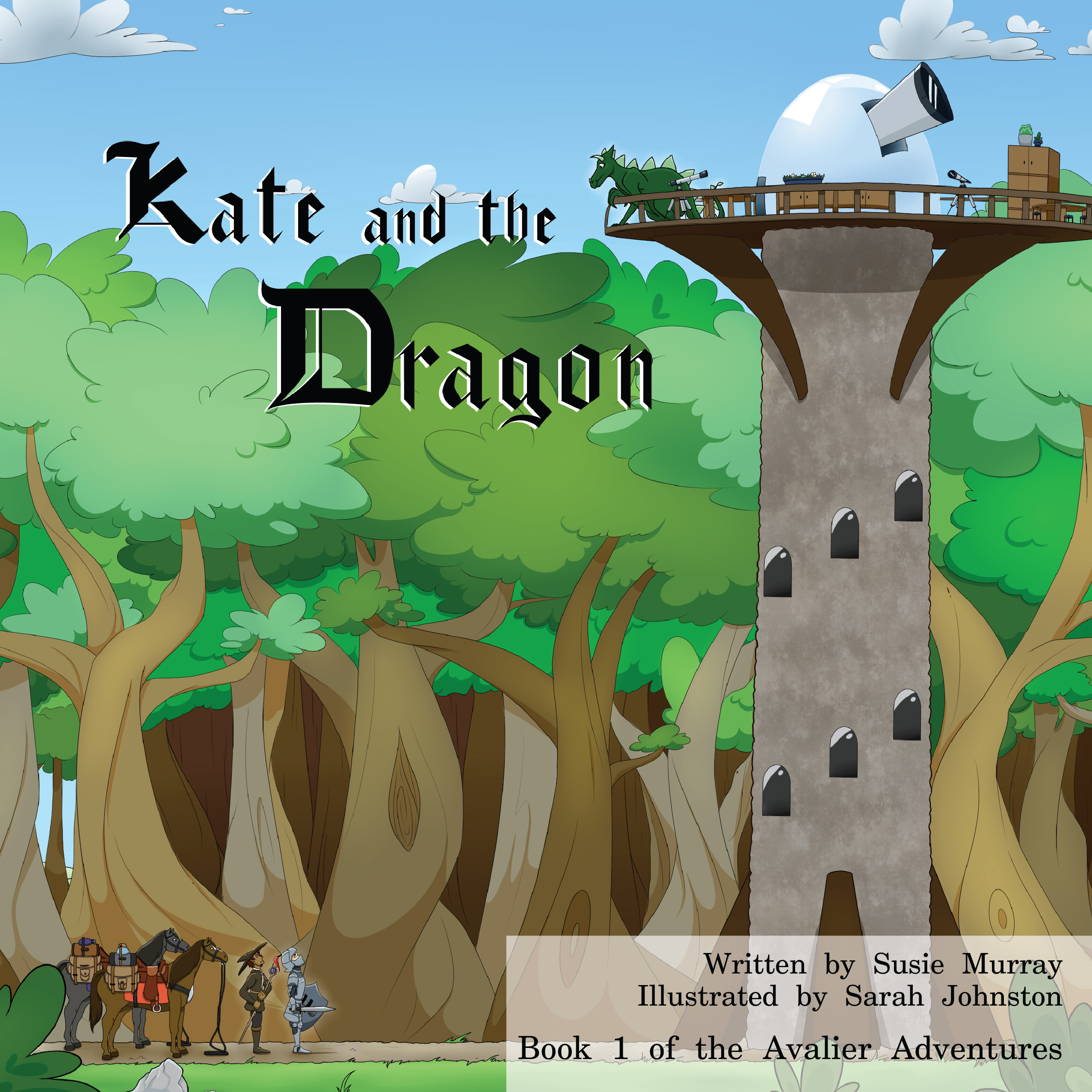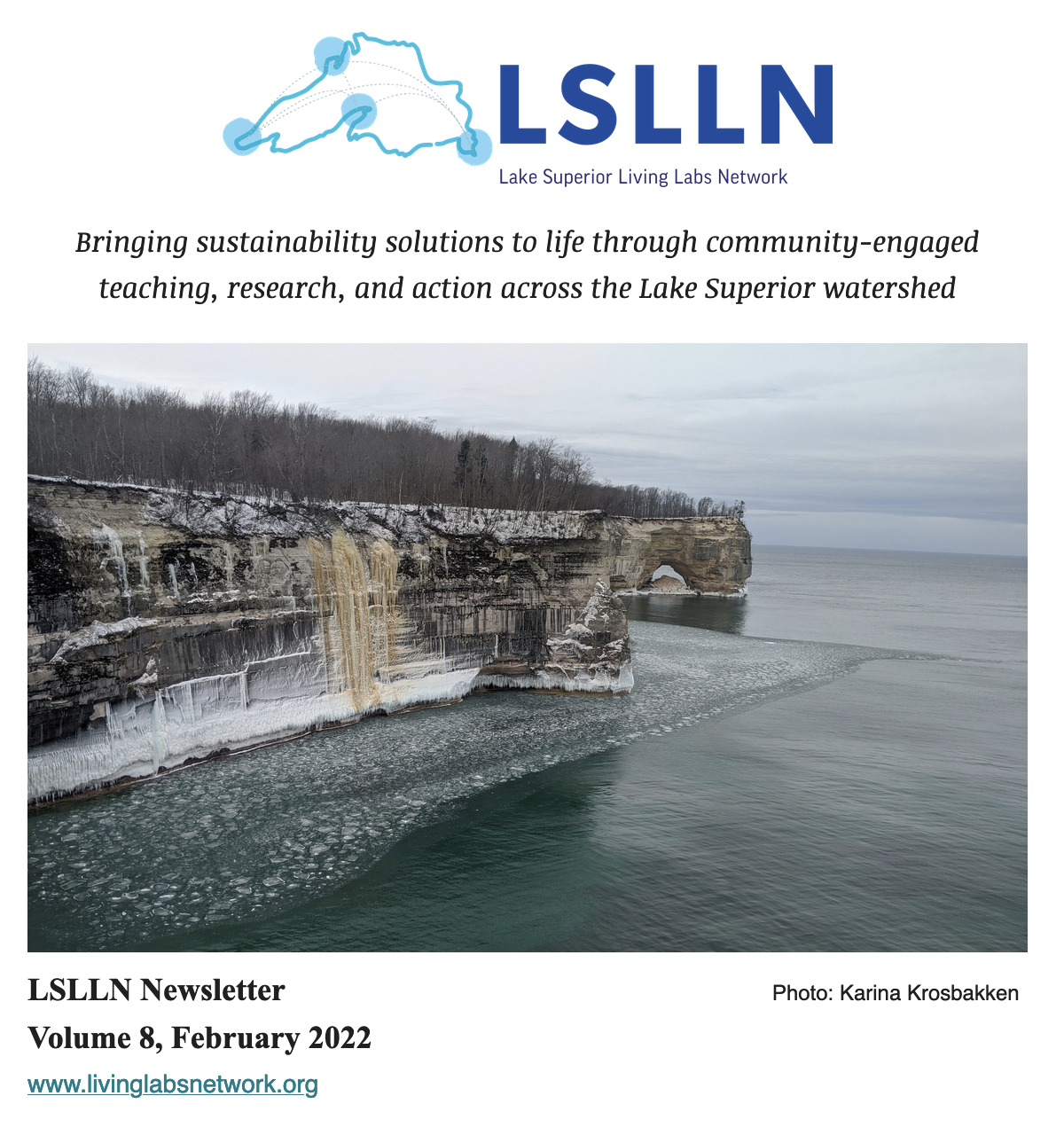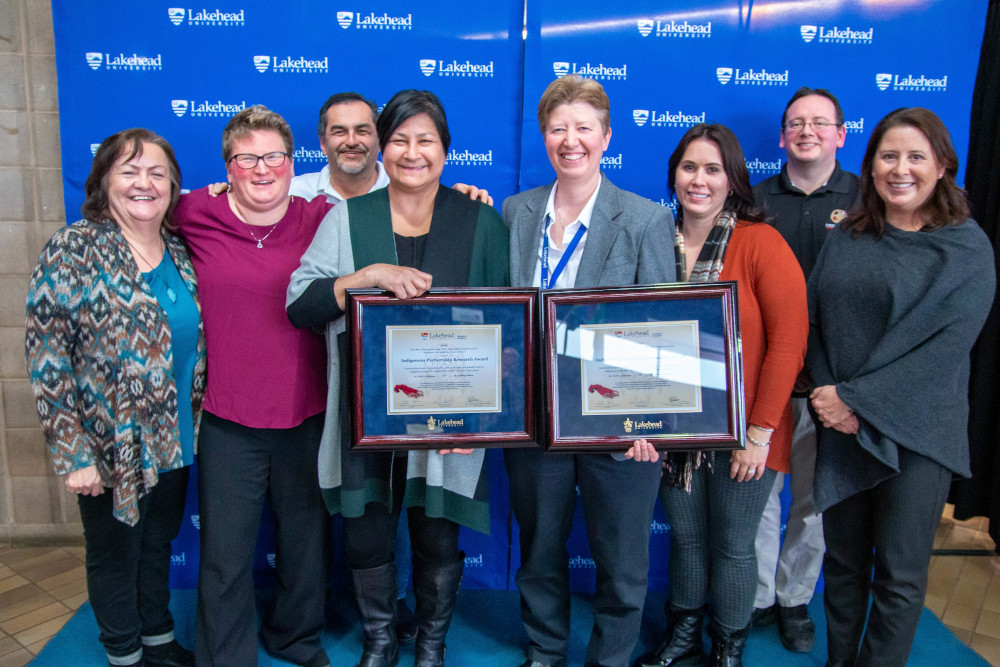
From left, Lillian Calder, Councillor, Bingwi Neyaashi Anishinaabek; Robyn O'Loughlin, Postdoctoral Fellow, EPID@Work Research Institute, Lakehead University; Conway Lesperance, former Health and Safety Advisor, Nokiiwin Tribal Council; Audrey Gilbeau, Executive Director, Nokiiwin Tribal Council; Vicki Kristman, Director, EPID@Work Research Institute & Associate and Professor, Dept. of Health Sciences, Lakehead University; Tiffany Rogowski, Health, Safety and Wellness Advisor, Nokiiwin Tribal Council; Jeff Robert, Health and Safety Advisor, Nokiiwin Tribal Council received the Indigenous Research Partnership Award, presented by Denise Baxter, Vice-Provost, Indigenous Initiatives, Lakehead University, far right, at the 2020 Research Awards of Excellence ceremony hosted by Lakehead University.
January 27, 2022 – Thunder Bay, Ont.
Lakehead University researchers are receiving more than $2.1 million from the Canadian Institutes of Health Research for several important projects.
Dr. Vicki Kristman, Associate Professor in Health Sciences and Director of Lakehead’s Enhancing the Prevention of Injury and Disability (EPID) at Work Research Institute, is receiving $367,200 to evaluate the Wiiji app’s effectiveness in improving the mental health of Indigenous people in the workplace.
In partnership with the Nokiiwin Tribal Council, which consists of five communities, Dr. Kristman and her team will conduct this research for up to three years.
“There is a need to tailor mental health interventions to the needs of Canadian Indigenous people.” Dr. Kristman said.
“Indigenous individuals are less likely to seek help for mental health – this is a major concern among communities of the Nokiiwin Tribal Council,” said Audrey Gilbeau, Executive Director of the Nokiiwin Tribal Council.
Dr. Kristman said e-health interventions have shown success for several mental health-related conditions, including anxiety, depression, sleeping disorders and feelings associated with low self-worth.
“Yet, only one Australian study has started to explore the acceptability of e-mental health approaches among remote health service providers working with Indigenous populations, and no study has explored the possibility of e-mental health approaches for individual workers and managers within workplaces,” Dr. Kristman said.
With direction from the communities, members of the Nokiiwin Tribal Council and Dr. Kristman’s team developed an e-mental health app for Indigenous workplaces called 'Wiiji,' to improve Indigenous workplace mental health through a CIHR Catalyst Grant: Work Stress and Wellbeing Hackathon.
Wiiji provides information on work-related mental health and mental-health resources that Indigenous workers can access, and provides a mechanism to connect with a peer-support who can assist the worker in times of stress.
“The primary goal of this research is to evaluate the app for improvement in Indigenous workplace mental health. We will use a mixed-methods approach to conduct this study.”
Results of this project will help communities understand the impact of the app, and will provide insight into usage barriers and perceived effectiveness.
“If the app can assist workers, it may have the potential to increase Indigenous participation in employment, reduce work disability, and improve the mental health of the Indigenous population,” Dr. Kristman said.
“This will return economic and health benefits to Indigenous employers, communities, families, and individuals.”
Dr. Christopher Mushquash, Professor in Psychology and Canada Research Chair in Indigenous Mental Health and Addiction, and his team are receiving $344,250 to examine the relationship between adverse childhood experiences and various aspects of well-being.
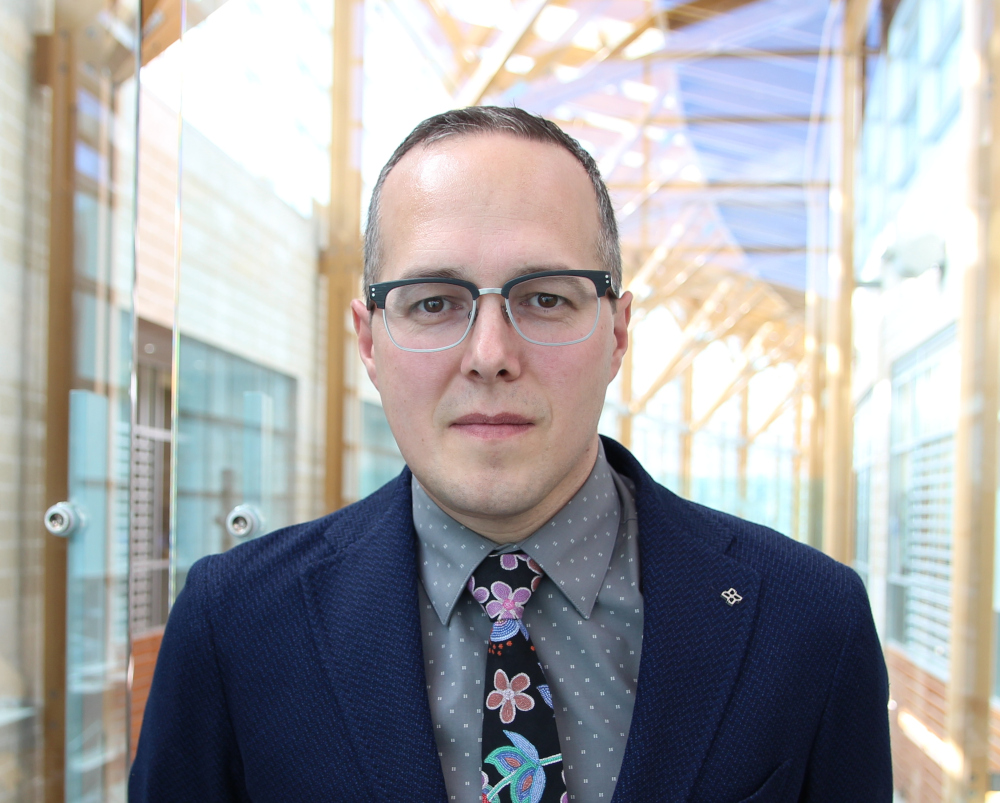
Conducted for up to five years, this research will allow the team to create a knowledge base that Indigenous community-based organizations can use to better support members who are facing difficulties with mental health and addictions.
“Indigenous peoples in Canada experience more health difficulties compared to non-Indigenous populations and are more likely to have poorer access to factors that may reduce the impact of these disparities, such as continuous health services in remote or rural settings,” Dr. Mushquash said.
This project is in close collaboration with Meagan Drebit and Tina Bobinski at Dilico Anishinabek Family Care as well as staff and management at the Adult Residential Treatment Centre. The research team is co-led by CIHR Banting Postdoctoral Fellow, Dr. Elaine Toombs, and graduate trainees Jessie Lund and Abbey Radford.
Decades of research across non-Indigenous populations has identified that adverse childhood experiences are associated with poor health outcomes and increased risk for experiencing a range of chronic diseases.
“These adverse childhood experiences include abuse, neglect, and household challenges – such as intimate partner violence,” Dr. Mushquash said.
“However, the relationship between intergenerational trauma, adverse childhood experiences, and health outcomes among Indigenous peoples is understood in our communities but not as well-documented in the research literature.
“There is also a lack of research examining how factors such as cultural connectedness, community support, and resilience protect Indigenous adults who have a history of adverse childhood experiences,” he said.
Dr. Andrew P. Dean, Lakehead’s Vice-President, Research and Innovation, thanked the researchers for all of their hard work.
“Congratulations to each of our researchers for their outstanding success in obtaining CIHR grants,” he said.
“A number of these projects will have significant applications to addressing the health inequities and health challenges of people of Northern Ontario. Health and well-being is a priority research area for Lakehead University and these research projects emphasize the excellent and applied nature of researchers working at Lakehead University in this field.”
The Research Support Fund is a federal funding program for post-secondary institutions in Canada to support some of the costs associated with managing research funded by the Canadian Institutes of Health Research, Natural Sciences and Engineering Research Council, and Social Sciences and Humanities Research Council.
In 2020/21, Lakehead University received nearly $2 million in assistance from the Research Support Fund to support the indirect costs of research, which includes costs for supporting the management of intellectual property, research and administration, ethics and regulatory compliance, research resources, and research facilities.
New CIHR Grants 2020-21
Total: $2,146,928
Catalyst Grant – Patient-Oriented Research (one-year grant)
Dr. Chiachen Cheng, Faculty of Medicine, West Campus, “Canadian Network for Youth-Friendly Mental Health Services: Developing a Standard for Implementing, Evaluating, and Improving Youth-friendly Mental Health Services”, $97,085.
Team
- Catherine Ford (co-applicant), Ministry of Health and Long-Term Care
- Joanna Henderson (co-applicant), Centre for Addictions and Mental Health
- Dr. Donald Addington (co-applicant), University of Calgary
- Mae V. Katt (co-applicant), Northern Nishnawbe Education Council
- Dr. Helle Moeller (co-applicant), Health Sciences, Lakehead University
- Dr. Christopher Mushquash (co-applicant), Psychology, Lakehead University
- Dr. Arianne St. Jacques (co-applicant), Northern Ontario School of Medicine
- Kathleen Anderson, Northern Ontario School of Medicine
- Dr. Philip Tibbo (co-applicant), Dalhousie University
- Tom Ehmann (co-applicant), Vancouver Psychology Consortium
- Elizabeth Minnery, (principal knowledge user)
- Gordon Langill (knowledge user) EPION
- Celine Mulhern (knowledge user), Ministry of Health and Long-Term Care
- Catherine Willinsky, Schizophrenia Society of Canada
Operating Grant: Knowledge Synthesis Grant: COVID-19 Rapid Research Funding Opportunity in Mental Health and Substance Use (one-year grant)
Dr. Kathryn Sinden, School of Kinesiology, “Protecting Those Who Protect Us: An Evaluation and Synthesis of Resources Deployed to Support the Mental Health of First Responders During COVID-19”, $49,968.
Team
- Dr. Joy MacDermid Joy (co-applicant), University of Western Ontario
- Regan Bolduc (primary knowledge user), Thunder Bay Fire Rescue
- Dennis Brescacin (collaborator), Thunder Bay Professional Firefighters Association
Project Grants (three- to five-year grants)
Dr. Vicki Kristman, Department of Health Sciences, “Evaluating the Wiiji app to Improve Indigenous Workplace Mental Health: A Mixed-methods Approach”, $367,200.
Team
- Dr. Christopher Mushquash (co-applicant), Psychology, Lakehead University
- Dr. Robyn O'Loughlin (co-applicant - trainee),Lakehead University
- Audrey Gilbeau (collaborator – knowledge user), Nokiiwin Tribal Council
Dr. Christopher Mushquash, Department of Psychology, “Examining Adverse Childhood Experiences (ACEs) In A First Nations Treatment-Seeking Population”, $90,000.
Team
- Jessie Lund (co-applicant - trainee), Psychology
- Dr. Elaine Toombs (co-applicant), Psychology
- Tina Bobinski (collaborator – knowledge user), Dilico Anishinabek Family Care
- Joe Byzewski (collaborator – knowledge user), Dilico Anishinabek Family Care
- John Dixon (collaborator – knowledge user), Dilico Anishinabek Family Care
- Meagan Drebit (collaborator – knowledge user), Dilico Anishinabek Family Care
Dr. Christopher Mushquash, Department of Psychology, “Integrating Trauma-Informed Evaluation and Treatment of Adverse Childhood Experiences with a First Nations Treatment Seeking Population”, $344,250.
Team
- Meagan Drebit (principal applicant – knowledge user), Dilico Anishinabek Family Care
- Tina Bobinski (co-applicant – knowledge user), Dilico Anishinabek Family Care
- Jessie Lund Jessie (co-applicant – trainee), Psychology
- Abbey Radford (co-applicant - trainee), Psychology
- Dr. Elaine Toombs (co-applicant), Psychology
- Joseph Byzewski (collaborator – knowledge user), Dilico Anishinabek Family Care
- Carol Hopkins (collaborator – knowledge user), Thunderbird Partnership Foundation
Global Alliance for Chronic Disease (five-year grant)
Dr. Lana Ray, Department of Indigenous Learning, “The Waasegiizhig Nanaandawe'iyewigamig Mino-Bimaadiziwin Project: Cancer Prevention through Traditional Healing/Indigenous Approaches to Health as Best Practice: Primary and Secondary Prevention of Cancer”, $1,198,425.
Team
- Dr. Anna Koné (co-applicant), Department of Health Sciences
- Dr. Walter Woodchis, University of Toronto
- Dr. Cindy Peltier, Nipissing University
- Anita Cameron (principal knowledge user), Waasegiizhig Nanaandawe"iyewigamig
- Serena Joseph (knowledge user), Waasegiizhig Nanaandawe"iyewigamig
- Kathy Bird (knowledge user), Peguis First Nation
- Katherine Fobister (knowledge user), Grassy Narrows First Nation
- Roy Napish (knowledge user), Eagle Lake First Nation
- Ken Nash (knowledge user), Northwest Angle 37
- Jimmy Wayendowpanicken (knowledge user), Kenora
- Robert Charles Green (knowledge user), Iskatewizaagegan No. 39 First Nation
- Sarah Mandamin (knowledge user), Iskatewizaagegan No. 39 First Nation
- Phyllis Shaugabay (knowledge user), Washagamis Bay First Nation
- Debbie Lipscombe (collaborator), Grand Council Treaty #3
– 30 –
Media: For more information or interviews, please contact Brandon Walker, Media, Communications and Marketing Associate, at (807) 343-8110 ext. 8372 or mediarelations@lakeheadu.ca.
Lakehead University is a fully comprehensive university with approximately 9,700 full-time equivalent students and over 2,000 faculty and staff at two campuses in Orillia and Thunder Bay, Ontario. Lakehead has 10 faculties, including Business Administration, Education, Engineering, Graduate Studies, Health & Behavioural Sciences, Law, Natural Resources Management, the Northern Ontario School of Medicine, Science & Environmental Studies, and Social Sciences & Humanities. Lakehead University’s achievements have been recognized nationally and internationally, including being ranked, once again, among Canada’s Top 10 primarily undergraduate universities in Maclean’s 2021 University Rankings; as well as included in the top half of Times Higher Education's 2022 World Universities Rankings for the third consecutive year, and in the top 100 of 1,115 universities from around the world in THE's 2021 Impact Rankings (which assesses institutions against the United Nations’ 17 Sustainable Development Goals). Visit www.lakeheadu.ca.
